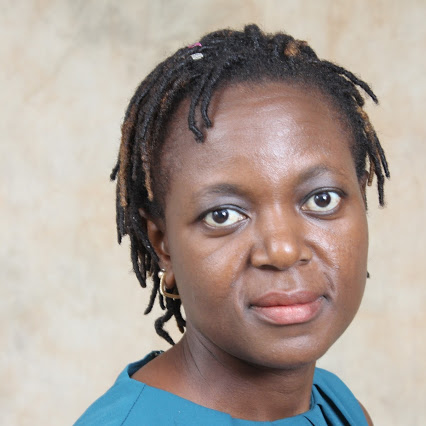
We begin the first in a series of articles that seek to break down and explain the Electoral Act and electoral laws in general. The Electoral Act, It is not the easiest piece of legislation to understand, we will try to simplify it for the benefit of those who will be interested in knowing the legal issues around elections. Political and civil rights
By MIRIAM TOSE MAJOME
Civil rights relate to citizens’ participation and in societal and community activities. Civil rights ensure people’s physical and mental integrity in their day-to -day lives in their societies and communities. Conversations and issues about civil rights centre on such issues as racial segregation, gender inclusion, sexual orientation, disability, age, religion, ethnicity amongst other social issues. Civil rights impact politics directly because governments are formed to administer civil rights issues. Political rights are about participation in the political life of the state. Members of the society are empowered to elect public officials or offer themselves as candidates to hold public office.
Constitutional rights
The Constitution allows all citizens to participate in politics freely without restraint or compulsion. No one should be forced to participate in political activities against their conscience or will in as much as they should not be prohibited from participating if they choose to. Political participation is broad and includes discussing politics, running for office or voting for preferred candidates into political posts. Section 67(1) states that every Zimbabwean citizen has the right to free, fair and regular elections as well as to make political choices freely. Section 62(2) states further that every Zimbabwean has the right to form, to join and to participate in the activities of a political party or organisation of their choice as well as campaign freely and peacefully for a political party or political cause. Citizens are also empowered to participate, individually or collectively in gatherings or groups or in any other manner as long as it is done peacefully. They also have the right to influence, peacefully challenge or support the policies of the government.
The Electoral Act
The Electoral Act provides for the creation of the Zimbabwe Electoral Commission (ZEC) and the terms of appointment of commissioners. The Act makes provisions for voter registration and lodging of objections by voters and political parties and candidates. It also provides for the preparation of the voters roll and sets the qualifications for voters and voter registration. It prescribes the procedure for the nomination and election of candidates and for the filling of parliamentary seats. It sets election rules and supervises presidential, parliamentary and local government elections. It defines electoral offences and sets the prescribed penalties and installs systems for the prevention of electoral malpractice. It establishes the Electoral Court for the hearing and determination of election petitions and related matters.
The Act is established in pursuit of Sections 157(1), 238 and 239 of the Constitution which prescribes the establishment of a parliamentary act that provides for the conduct of elections and referendums. The Act is tasked with setting the parameters for the periodic delimitation of constituencies and wards and sets how political parties and candidates conduct themselves. It also establishes a system of proportional representation for senatorial seats and the women’s quota.
- Chamisa under fire over US$120K donation
- Mavhunga puts DeMbare into Chibuku quarterfinals
- Pension funds bet on Cabora Bassa oilfields
- Councils defy govt fire tender directive
Keep Reading
The Zimbabwe Electoral Commission
The ZEC chairperson and eight other commissioners are appointed by the President in consultation with the Judicial Services Commission. They are supposedly chosen for their proved track record and experience and competences in the public and private sectors. They must be highly skilled individuals with high levels of integrity that are commensurate with the task of supervising and administering the country’s elections. Appointments are for six years and can be renewed for a further six years but they cannot serve more than 12 years as ZEC commissioners.
ZEC is responsible for preparing, supervising and conducting local government, parliamentary and presidential elections and would also have been responsible for provincial and metropolitan council elections if they had been established as prescribed by Sections 267-273. However, the government defied the Constitution and failed to establish the councils. ZEC also conducts the elections for members of the National Council of chiefs. It supervises intra-parliamentary elections of the President of the Senate and the Speaker of Parliament.
ZEC’s responsibilities
It also conducts national referendums of which there have been only two major ones in the past 20 years to decide whether or not to adopt two respective draft Constitutions in 2000 and 2013. The 2013 draft Constitution was accepted by the referendum and came into law. It is ZEC’s duty to ensure that elections are held in an efficient, fee, fair and transparent manner. Voter registration and the compilation of the voter’s roll and its maintenance are among some of ZEC’s biggest mandates. ZEC also sets or delimits and decides the constituencies and wards for elections. It has the duty to design, print and distribute ballot papers and approve the form of ballot boxes and their procurement.
There are questions and arguments to the effect that political parties should be consulted in the selection and procurement of ballot papers and ballot boxes but according to the law it is only ZEC which has this mandate.
The law does not provide for the involvement of political parties in its internal administrative processes. ZEC is also mandated with voter education and accreditation of election observers,therefore, organisations and individuals that will not be accredited by ZEC cannot observe the forthcoming elections. ZEC receives and handles complaints from the public regarding any issue regarding elections.
Miriam Tose Majome is a lawyer and a teacher. She can be contacted on [email protected]











